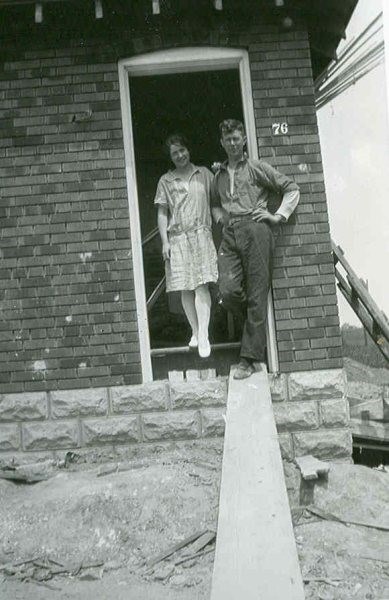Depression in Seniors and the Need to Belong
Not unlike Teenagers, Seniors need to feel they belong. They connect over the years through work, children, friends and community activity. With age comes the ‘thinning’ of contacts.
According to the Government of Canada, after age 65 people are comfortable and depression and suicide drops to the 12th most common cause of death. Women seem to cope the best with aging. Males make up 80% of those who take their own lives. The highest rate of depression and suicide is among males age 85 and older.
Although conjecture, with age, ‘belonging’ is associated with established roots. My mother lived for 64 years in the house my dad built in Toronto. That little 720 square foot house and the ‘odd’ children raised there, were her roots. That house was where she belonged.
In old age she insisted on staying in her house until the very end, and she died there.
Her father, my grandfather, was a ‘drifter’. The family moved all over Ontario. When she moved into the house my dad built, she finally found where she belonged. Although my Dad built it, everyone called it Mom’s House.
Seniors and the Accumulation of Stuff
Where a Senior has their roots is where they feel they belong, surrounded by ‘their stuff’. Each bit of stuff is a memory. A bent saw blade; a cracked coffee mug; a bottle of assorted nails – a piece of steel used as an anvil; a painting from an art class; the art work of grandchildren and more. It’s all the ‘stuff of memories’. That’s why they have it.
On her kitchen wall my mother had an ugly tin plate with Newfoundland printed on it. She loved it. It was from her granddaughter.
Moving out of Your House
For a Senior, moving is leaving your Roots. A Seniors’ Residence isn’t the same. Moving means leaving your ‘stuff’ behind. A move is a loss of memories – and often a loss of hope.
If they can, Seniors and people with disabilities should stay in their home as long as possible. Often this means a need for money to pay homecare; yard care and the like. BUT these costs can be paid for with money from a Property Tax Deferral Program.
Stay with your Stuff – With Deferred Property Tax Money
Government can allow Seniors and those with Disabilities to use the equity in their home to defer property taxes. Alberta and B.C. have property tax deferral programs making it possible for low-income Seniors and the disabled to stay at home – with their stuff.
Brad Wall made a feeble attempt at a program. Saskatchewan Seniors can defer school taxes. But a real, robust Property Tax Deferral Program is needed.
Consider these programs.
British Columbia
“To qualify for the BC Tax Deferral Program, homeowners in British Columbia must be at least 55 years of age. The province will pay, on your behalf to the municipality, part or all of your residential or farm property taxes. Interest rates are calculated every six months and range from 1% with the regular program to 3% for families with children. You can repay the loan at any time. If you think you might want to take advantage of the deferral program in the future, keep your account open with a balance of at least $25.”
To qualify, you must:
- be at least 55
- have at least 25% in home equity and fire insurance
- be a surviving spouse at any age
- be a person with disabilities
- be financially supporting your child or stepchild
Or
Alberta
“In 2013, Alberta started offering property tax deferral to individuals over age 65. The province offers a low-interest home equity loan — 2.58% — to those who qualify. The interest rate is reviewed and adjusted every April and October. The provincial government will pay your property taxes to the municipality and you will repay the loan when you sell the home or when you are able.”
To qualify you must:
- be at least 65
- live in Alberta
- have this property as your primary residence
- have at least 25% in home equity
The B.C. Program is the fairest. It helps Seniors, people with disabilities or supporting a child.
Come on Saskatchewan – give us a real Property Tax Deferral Program that makes it easy for Seniors, the Disabled or someone financially supporting their child or stepchild, to stay in their home or on their farm.




